Economy Ncert Notes class (9-12) contains – Edition = 2023-24, Pages = 108, Pages, Format = Pdf, Get free updated notes under = 3 Months. Buy All in One combo and Get More Discount & Benefits = Click Here
|| Content of Economy Ncert Notes ||
Class: 9 – Economics
- Chapter: 1 – The Story of Village Palampur
- Chapter: 2 – People as Resource
- Chapter: 3 – Poverty as a Challenge
- Chapter: 4 – Food Security in India
Class: 10 – Understanding Economic Development
- Chapter: 1 – Development
- Chapter: 2 – Sector of the Indian Economy
- Chapter: 3 – Money and Credit
- Chapter: 4 – Globalization and the Indian Economy
- Chapter: 5 – Consumer Rights
Class: 11 – Indian Economy Development
- Chapter: 1 – Indian Economy on the Eve of Independence
- Chapter: 2 – Indian Economy 1950-1990
- Chapter: 3 – Liberalization, Privatization and Globalization: An Appraisal
- Chapter: 4 – Human Capital Formation in India
- Chapter: 5 – Rural Development
- Chapter: 6 – Employment: Growth, Informalisation and Other Issues
- Chapter: 7 – Environment and Sustainable Development
- Chapter: 8 – Comparative Development Experiences of India and its Neighbours
Class: 12 – Introductory Macroeconomics
- Chapter: 1 – Introduction
- Chapter: 2 – National Income Accounting
- Chapter: 3 – Money and Banking
- Chapter: 4 – Determination of Income And Employment
- Chapter: 5 – Government Budget and the Economy
- Chapter: 6 – Open-Economy Macroeconomics
|| Class: 9 – Economics | Economy Ncert Notes ||
Chapter: 1 – The Story of Village Palampur
- Overview
- Organization of Production
- Farming in Palampur
- Non-Farm Activities in Palampur
- Summary
Chapter: 2 – People as Resource
- Overview
- Economic Activities by Men and Women
- Quality of Population
- Unemployment
- Summary
Chapter: 3 – Poverty as a Challenge
- Overview
- Poverty Is Multidimensional
- Poverty As Seen By Social Scientists
- Poverty Line
- Poverty Estimates
- Vulnerable Groups
- Inter-State Disparities
- Global Poverty Scenario
- Causes of Poverty
- Anti-Poverty Measures
- The Challenges Ahead
- Summary
Chapter: 4 – Food Security in India
- Overview
- What Is Food Security?
- Why Food Security?
- Who Are Food-Insecure?
- Food Security in India
- What Is Buffer Stock?
- What Is The Public Distribution System?
- Current Status of Public Distribution System
- Role of Cooperatives in Food Security
- Summary
|| Class: 10 – Economic Development | Economy Ncert Notes ||
Chapter: 1 – Development
- What Development Promises – Different People, Different Goals
- Income and Other Goals
- National Development
- How to Compare Different Countries or States?
- Income and Other Criteria
- Public Facilities
- Sustainability of Development
Chapter: 2 – Sector of the Indian Economy
- Comparing the Three Sectors
- Primary, Secondary and Tertiary Sectors In India
- Division of Sectors as Organized and Unorganized Sector In Terms of Ownerships: Public and Private Sectors
Chapter: 3 – Money and Credit
- Money as a Medium Of Exchange
- Modern Forms of Money
- Loan Activities of Banks
- Two Different Credit Situations
- Terms of Credit
- Formal Sector Credit in India
- Self-Help Groups for the Poor
- Summing Up
Chapter: 4 – Globalization and the Indian Economy
- Production across Countries
- Interlinking Production across Countries
- Foreign Trade and Integration of Markets
- What Is Globalisation?
- World Trade Organisation
- Impact of Globalisation on India
- The Struggle for a Fair Globalization
- Summing Up
Chapter: 5 – Consumer Rights
- The Consumer in the Marketplace
- Consumer Movement
- Consumer Rights
|| Class: 11 – Indian Economy on the Eve of Independence | Economy Ncert Notes ||
Chapter: 1 – Indian Economy on the Eve of Independence
- Low Level of Economic Development under the Colonial Rule
- Agricultural Sector
- Industrial Sector
- Foreign Trade
- Demographic Condition
- Occupational Structure
- Infrastructure
- Conclusion
Chapter: 2 – Indian Economy 1950-1990
- Introduction
- The Goals of Five-Year Plans
- Agriculture
- Industry and Trade
- Trade Policy: Import Substitution
- Conclusion
Chapter: 3 – Liberalization, Privatization And Globalization: An Appraisal
- Background
- Liberalization
- Privatization
- Globalization
- Indian Economy during Reforms an Assessment
- Conclusion
Chapter: 4 – Human Capital Formation in India
- Sources of Human Capital
- Human Capital and Human Development
- Education Sector in India
- Conclusion
Chapter: 5 – Rural Development
- Rural Development
- Credit and Marketing in Rural Areas
- Agricultural Marketing
- Diversification of Agricultural Activities
- Sustainable Development and Organic Farming
- Conclusion
Chapter: 6 – Employment: Growth, Informalisation And Other Issues
- Employment
- Workers and Employment
- Participation of People in Employment
- Employment in Firms, Factories and Offices
- Growth and Changing Structure of Employment
- In formalisation of Indian Workforce
- Unemployment
- Government and Employment Generation
- Conclusion
Chapter: 7 – Environment and Sustainable Development
- Introduction
- Environment- Definition and Functions
- State of India’s Environment
- Sustainable Development
- Strategies for Sustainable Development
- Conclusion
Chapter: 8 – Comparative Development Experiences of India and Its Neighbours
- Introduction
- Developmental Path
- Demographic Indicators
- Gross Domestic Product
- Indicators of Human Development
- Development Strategies: An Appraisal:
- Conclusion
|| Class: 12 – Introductory Macroeconomics | Economy Ncert Notes ||
Chapter 1: Introduction
- Emergence of Macroeconomics
- Context of the Present Book of Macroeconomics
Chapter: 2 – National Income Accounting
- Some Basic Concepts of Macroeconomics
- Circular Flow of Income and Methods of Calculating National Income
- Some Macroeconomic Identities
- Nominal and Real GDP
- GDP and Welfare
Chapter: 3 – Money and Banking
- Functions of Money
- Demand for Money and Supply of Money
- Money Creation by the Banking System
- Methods of Credit Control Instruments of Monetary Policy:
Chapter: 4 – Determination of Income and Employment
- Aggregate Demand and Short-Run Equilibrium Output
- Short-Run Equilibrium Output
- Investment Multiplier and Its Working
Chapter: 5 – Government Budget and the Economy
- Government Budget
- Balanced, Surplus and Deficit Budget
Chapter: 6 – Open-Economy Macroeconomics
- The Balance of Payments
- The Foreign Exchange Market
|| T0 Buy Ncert Notes Combo Offer ||
- An Introduction to Indian Art Ncert Notes
- Ancient History Tamilnadu Board Notes
- Ancient India Old Ncert Notes
- Economy Ncert (9-12) Notes
- Geography Ncert Class (6-12) Notes
- Medieval History Tamilnadu Board Ncert Notes
- Medieval History Old Ncert Notes
- Modern History Old Ncert Notes
- Political Science Ncert Notes Class (6-12)
- Science Ncert Notes class (6-12)
- History Ncert Notes class (6-12)
- The Story of Civilization Ncert Notes by Arjun Dev
- Sociology Ncert Class (11-12) Notes
To Buy only Ncert Notes Combo – Click Here
|| T0 Buy All In One Combo Offer Notes ||
- For Year = 2024
- Formats = Pdfs
- Language = English
- Get extra 10% off, use code – Allinone10
- Ncert Notes = An Introduction to Indian Art | Ancient History Tamilnadu Board | Ancient India Old Ncert | Economy Ncert (9-12) | Geography Ncert Class (6-12) | Medieval History Tamilnadu Board | Medieval History Old Ncert | Modern History Old Ncert | Political Science Ncert Class (6-12) | Science Ncert class (6-12) | History Ncert class (6-12) | The Story of Civilization Ncert by Arjun Dev | Sociology Ncert class (11-12) |.
- Mains Notes = Art and Culture Nitin Singhania | GC Leong Latest Edition | Environment Shankar Ias | Ethics Lexicon | Indian Polity M.Laxmikanth | Indian Society Topic Wise |Internal Security Ashok Kumar IPS | Modern History Spectrum | Science and Tech Ravi P Agrahari | Indian Economy Ramesh Singh |.
- Ghatna Chakra Prelims Pointer = Environment | General Science | Geography | History | Indian Polity & Governance |Economy |.
- Extra Addon = 2nd ARC Reports Notes | How To Plan Your Study | How to Top UPSC: Strategies for Effective Preparation | Quotation Book | Ultimate Guide to Master Answer Writing: Techniques for Brilliance | UPSC Syllabus and How to Cover it Efficiently |.
- Ncert Edition = 2023-24
- Pointer Edition = 2023
- Give BoostUP in Your = UPSC and State PCS Preparation
- Get free updated notes under = 1 Year
- How to Buy/Download Notes – Click Here
- How to get the Updated Notes – Click Here
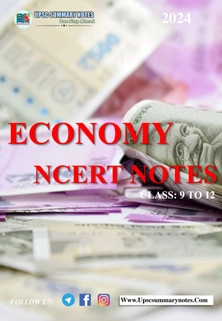
![1 Economy Ncert Notes Class (9-12) For UPSC 2024 [PDF]](https://upscsummarynotes.com/wp-content/uploads/2023/06/1-3.webp)












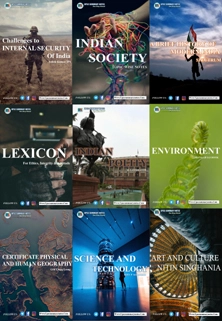
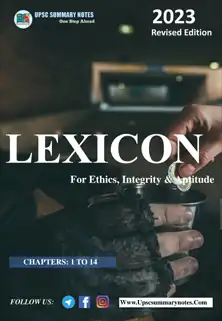

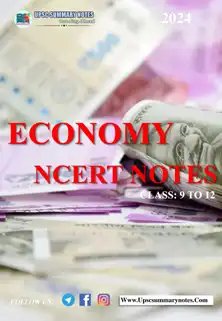
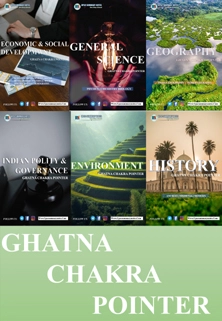
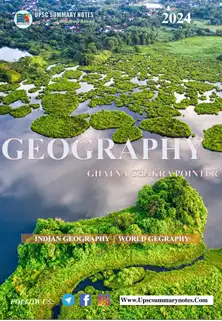
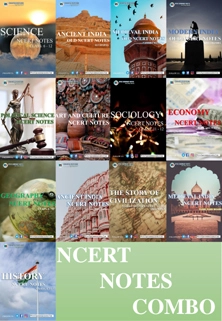

Nitish Gautam –
This is the best revision material by far. This readily available notes for economy is so well written. This is going to be so helpful during my revision.
Rohan Surve –
It’s a very useful short notes that Covers all topics in short period of time . thank you
Vijay Karthik –
This is a wholesome notes. Must to have. Better than many books.
Harsh Mahida –
Well organised
Arsh Khera –
Extremely happy with the Notes.